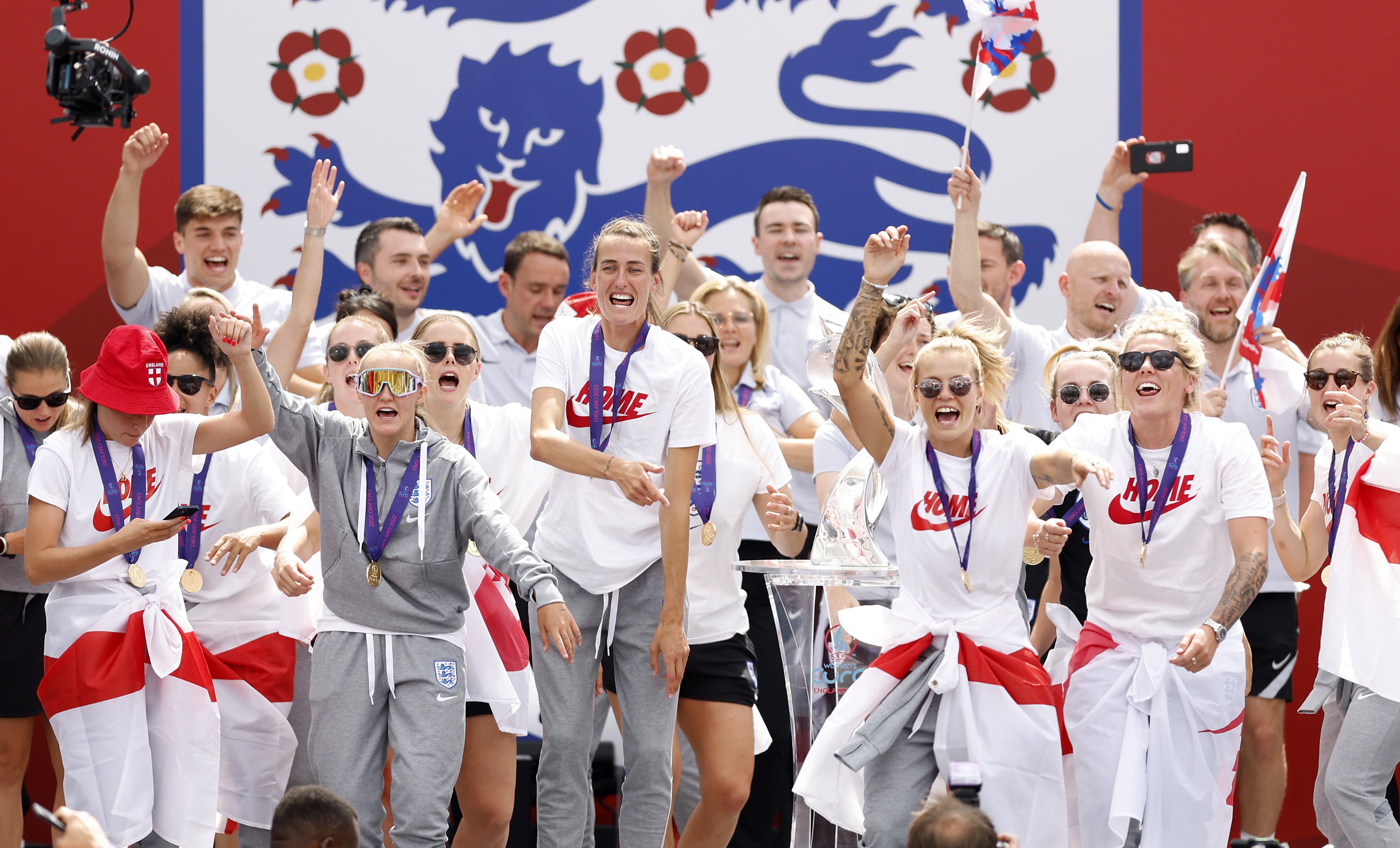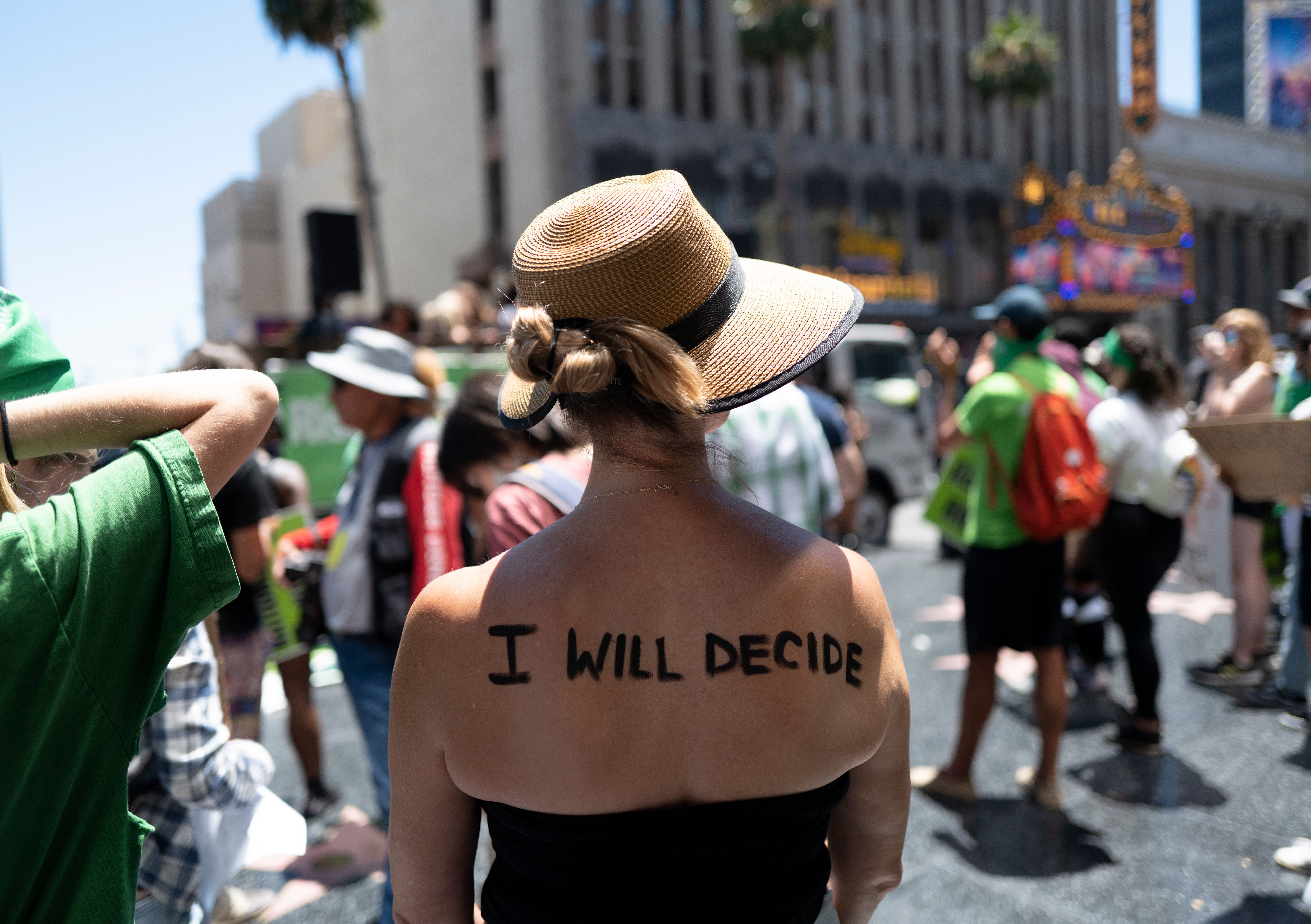
Liz Truss has become the third female prime minister in British history - placing the country ahead of the curve on female leaders, but not necessarily on women’s rights.
Ms Truss, who beat her rival Rishi Sunak to become the new Conservative Party leader, succeeds Margaret Thatcher and Theresa May.
But campaigners have raised questions over whether the former foreign secretary will tackle gender inequality, with warnings the result will not “guarantee progress for women” in comparison to the rest of the world.
Only 63 countries have ever elected a women in the highest position of power and the UK now matches Iceland, New Zealand, Lithuania and Poland with three female heads of state over time. Just behind Finland, with four, and Switzerland with five.
Truss, who was appointed women and equalities minister in 2019, has faced criticism from campaigners for positioning herself as “anti-woke” and playing “culture war games” to appeal to a “bigoted” section of the Conservative Party’s base.
In a controversial speech in December 2020, she announced plans to steer the UK’s equalities policy away from “fashionable” issues on race, sexuality and gender and derided “virtue signalling”, “pink bus feminism”, and so-called “camplaining”.
During her tenure as women and equalities minister, Ms Truss also faced criticism for axing initial plans to roll out the Gender Recognition Act as well as failing to ban gay conversion therapy despite pledging to.
Her appointment comes at a time when the UK trails behind other OECD (Organisation for Economic Co-operation and Development) countries on addressing the gender pay gap - a topic highlighted by the England women’s football team, the Lionesses, whose pay still lags well behind their male counterparts, despite their historic Women’s Euros win.
Mandu Reid, leader of the Women’s Equality Party, told The Independent Ms Truss as PM was “not a win for women or for gender equality”.
Ms Reid added: “She used her platform during her leadership bid to whip up culture wars, play down the impact of the cost of living crisis, and appeal to an increasingly populist, right-wing base. Women are the poorest half of the population - we earn less and rely more on public services.
“We need a PM that will acknowledge and urgently address the specific ways the cost of living crisis will impact women: the staggering costs of childcare, increased rates of domestic abuse, and energy bills that many families, especially single parent families, will simply not be able to afford.”
She warned she could not “celebrate any politician - regardless of gender - who refuses to recognise how dire the situation is for women”.
In light of Ms Truss becoming the third female PM in the UK, The Independent took a look at how the UK currently compares to other countries on gender equality.
Gender pay gap
Damning research released earlier in the year found women in the UK end up working for free for almost two months a year in comparison to the average man.
The study, carried out by the Trade Union Congress and shared exclusively with The Independent, discovered the gender pay gap for all workers is 15.4 per cent. Researchers warned this pay disparity results in women being forced to wait 56 days before they begin to earn money.
“It’s clear that just publishing gender pay gaps isn’t enough,” Frances O’Grady, general secretary of the Trade Union Congress (TUC), said. “Companies must be required to explain what steps they’ll take to close their gender pay gaps – and bosses who don’t comply with the law should be fined.”
Since the Lionesses’ historic win against Germany in the recent Women’s Euros, fans have condemned the gender pay gap between male and female footballers.

In terms of the gender pay gap around the world, previous statistics show the UK trails behind other OECD countries such as Italy, Greece, Sweden, Norway and Denmark.
Abortion
Abortions are still deemed a criminal act in England, Scotland and Wales under the 1967 Abortion Act. If any medical professional delivers an abortion out of the terms of the act, they are at risk of facing criminal punishment.
Legislation passed in 1861 means any woman who ends a pregnancy without getting legal permission from two doctors, who must agree continuing with it would be risky for the woman’s physical or mental health, can face up to life imprisonment.
Abortion providers, charities, medical bodies, and MPs have spent years calling for abortion to be decriminalised in the UK. They want to see abortion law extricated from criminal law and monitored in the same way as other medical practices.
The UK differs from other countries in the fact abortion is still criminalised, with pregnancy terminations decriminalised in Canada, Australia, Mexico and Northern Ireland.
Awareness that UK abortion law exists within a criminal framework has grown in the wake of the US Supreme Court overturning Roe v Wade – the landmark decision that legalised abortion nationwide in 1973 – in June.
Millions of women in America have subsequently lost their legal right to terminate a pregnancy, with experts recently telling The Independent UK anti-abortion activists have been “emboldened” by the dismantling of Roe.

Childcare
The UK has one of the most expensive childcare systems in the world - with the unaffordability of nurseries and childminders pushing many women out of the workplace.
A recent study found six in 10 women who have had an abortion say the cost of childcare in the UK put them off pregnancy. The report, carried out by campaign group Pregnant then Screwed, found almost one in five women said childcare costs were the main reason they decided to terminate a pregnancy.
While a previous study by the same organisation found almost one-fifth of parents have been forced into quitting their jobs due to the extortionate cost of childcare in the UK – with researchers saying it is predominantly women bearing this burden.
The OECD states Britain has one of the most expensive childcare systems worldwide, with just Switzerland and Slovakia being more expensive.
The present paternity leave system in the UK gives fathers only two weeks off work for paternity leave, for which they are only paid £300. Recent research discovered the number of fathers taking paternity leave has plummeted to a 10-year low, with only around a quarter of eligible fathers taking time off work after their child is born.
While the coalition government’s flagship policy of shared parental leave has faced criticism, with campaigners and economists warning it is a “deeply flawed and chronically failing policy” that must be axed and replaced with different measures.
The UK ranks behind other OECD countries for paternity leave, with Sweden, Iceland, and Norway among nations which provide stronger provision.
Parents in Britain can choose to take shared parental leave of up to 50 weeks, while paternity leave is currently 14 days, and fathers are given either £151.20 per week, or 90 per cent of their average weekly earnings – whichever sum is lower.
While Sweden, on the other hand, was the world’s first nation to swap maternity leave with parental leave in 1974. Parents in the Scandinavian country can get 480 days of paid parental leave, with each parent entitled to half of those days each.
Violence against women and girls
Domestic abuse and sexual violence disproportionately affects women and girls around the world and in the UK, with the UK government and the police facing sustained criticism for not doing enough to tackle these issues.
Between two and three women are murdered each week by their partners or ex-partners in England and Wales. One in four women will suffer domestic abuse at some point during their lives – with domestic abuse having a higher rate of repeat victimisation than any other crime.
While exclusive polling by YouGov, carried out for The Independent, previously found women feel far less safe walking home alone at night than they did three years ago, with almost two-thirds now feeling in danger.
The research discovered some 63 per cent of women who walk by themselves at nighttime “always” or “often” feel unsafe. This is an increase of 17 points from the 46 per cent of women who reported feeling this way in a poll three years ago.
But the world health organisation describes violence against women and girls as a “global pandemic” - noting the issue affects some one in three women in their lives around the world.
Jobs
Women make up less than a third of the top jobs in the UK, according to a recent report by the Fawcett Society, the UK’s leading gender equality charity, which also discovered women of colour are under-represented at the highest levels in a vast range of sectors.
Women are wholly absent from senior roles such as Supreme Court justices, FTSE 100 chief executives, metro mayors, and police and crime commissioners, researchers found.
But although women head only five per cent of the top 350 companies, girls have been outperforming boys in terms of GCSE level results since the 1980s in the UK.
A recent study by Deloitte of more than 10,000 publicly listed companies, just over 500 of which were UK companies, discovered the UK is behind European nations in terms of female boardroom representation.
Researchers discovered women made up less than 30 per cent of board seats in the UK, with Britain behind six European countries, including France, as well as New Zealand and South Africa.







